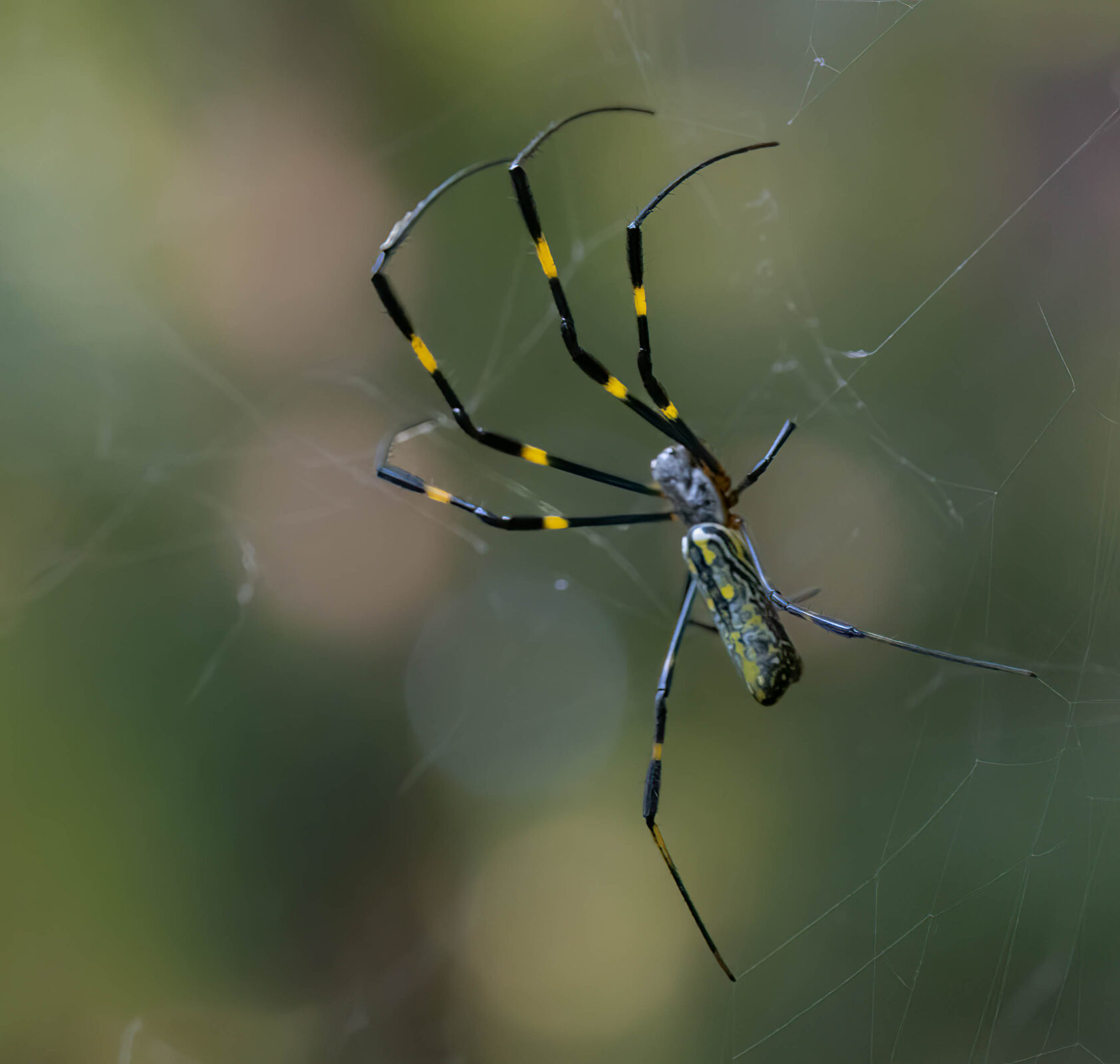Just in time for Halloween — the spooky-looking creepy-crawly Joro spider has reached the north Georgia area.

Native to Japan and China, Joro spiders are believed to have made the trek overseas by hitching a ride in a shipping container. The striking arachnid has been sighted in Paulding County.
The spiders are known for their enormous size (up to four inches), bright yellow and black coloring, and ability to “fly” on wind currents. While they are venomous and have large webs, they are harmless to humans, with a bite comparable to a mosquito bite, they can be physically removed from homes.
The Joro spider (Trichonephila clavata) is the largest spider currently found in Georgia. Adult female Joro spiders can have a body length of up to 1.25 inches, but their leg span can make them appear much larger, sometimes growing up to four inches.
Joro spiders cannot truly “fly,” but young spiderlings can travel significant distances using a process called ballooning. During ballooning, the spiderlings release strands of silk that act like a sail or parachute, allowing the wind to carry them. Adult Joro spiders are not airborne unless they are picked up by a strong wind, like any other spider.
Joro spiders are abundant in Georgia because the southeastern climate is well-suited to their survival and reproduction. Their high metabolism, cold tolerance, and ability to balloon (disperse via silk threads) further contribute to their successful spread.
The Jorō spider has the potential to impact native ecosystems, though the full extent is not yet known. They may compete with native spiders for food and web-building sites, potentially impacting native spider populations and community diversity. However, Jorō spiders also consume pest insects, including some invasive species like brown marmorated stink bugs, which could be a benefit. Their long-term ecological impact is still being investigated.
Joro spider webs and large and sticky. They can be a nuisance around the home. Photo by Sarah Sanke, https://www.inaturalist.org/photos/212546480.
Researchers are currently evaluating the effect the species will have on local ecology, but it is too soon to fully understand their impact. The good news is they pose no danger to humans and pets. In even better news, Joros are one of very few natural predators of stink bugs, one of the South’s most notorious agricultural nuisances, as well as other insects that fly into their webs, such as moths, flies and mosquitos. Scientists have referred to the spiders as “gentle giants.”
To get rid of Joro spiders, retired UGA Extension Entomologist, Will Hudson recommends to physically remove them with a broom in areas where you can reach them. Dr. Hudson says, “For those homeowners who are somewhat tolerant of spiders, our recommendation is to remove and kill any spiders that build webs on or adjacent to porches, walkways, decks, and doorways,in other words, anywhere contact with the webs is inevitable. On the periphery of the yard, or in shrubbery beds where people do not walk, these spiders can be left alone. The two places where no one should allow the webs to remain are around pollinator or flower gardens and bee hives.
Other control options include pesticides. In UGA trials on Joro control, we found that the aerosol Black Flag Spider and Scorpion Killer (with active ingredients lambda-cyhalothrin 0.03% and prallethrin 0.025%) killed 100% of treated spiders. An aerosol called Zevo Insect Killer Spray for Ant, Roach and Spider also was very effective (> 97% mortality). At the time of testing, the active ingredients of the Zevo spray were geraniol and cinnamon oil—which had the added benefit of smelling good.
To report a Joro spider sighting, visit jorowatch.org. To learn more about the Joro from UGA Extension specialists, visit: https://fieldreport.caes.uga.edu/news/first-joro-spider-in-spalding-county-spotted-at-uga-griffin/
The author of this article, Phillip Prichard, is a Paulding UGA Extension Master Gardener and Master Naturalist, trained to provide education for homeowners on horticulture, sustainable landscaping, and environmentally friendly gardening practices using unbiased, research-based information from the University of Georgia. For more information, contact Paulding County UGA Extension at 770-443-7616 or view our online resources at www.ugaextension.org/paulding.